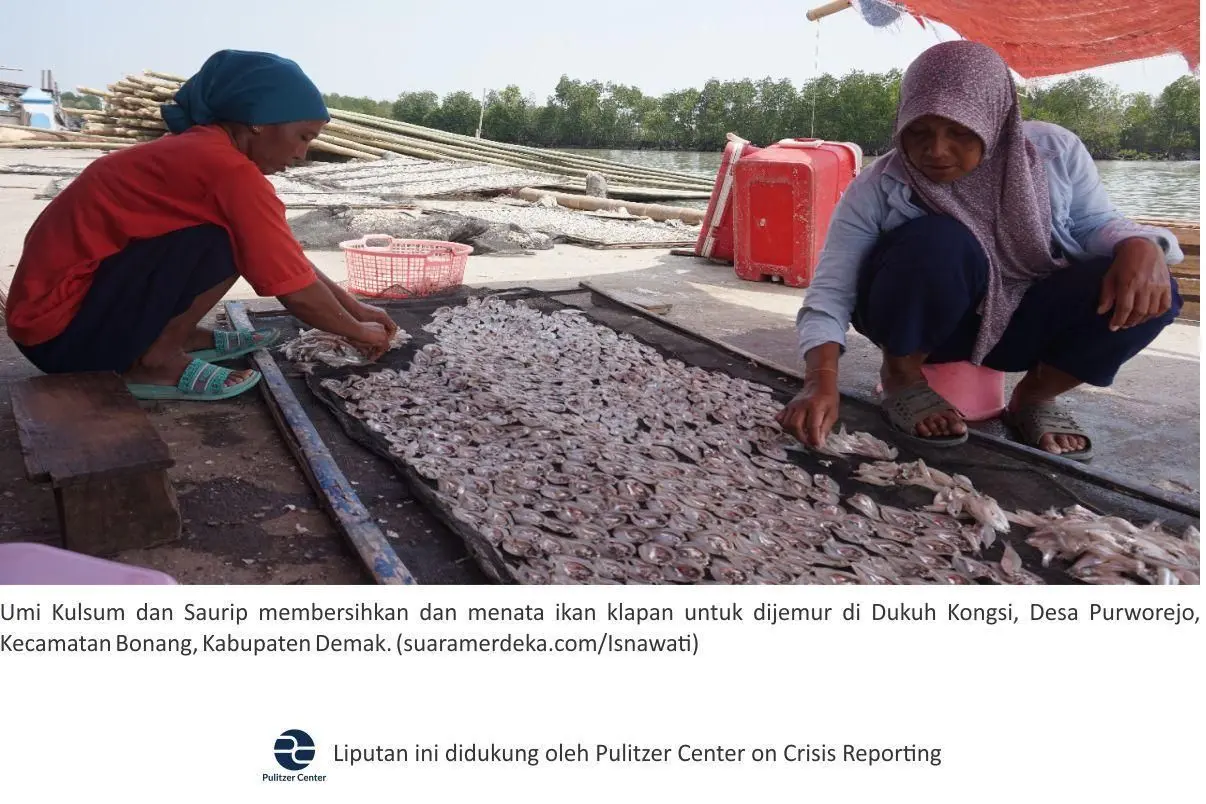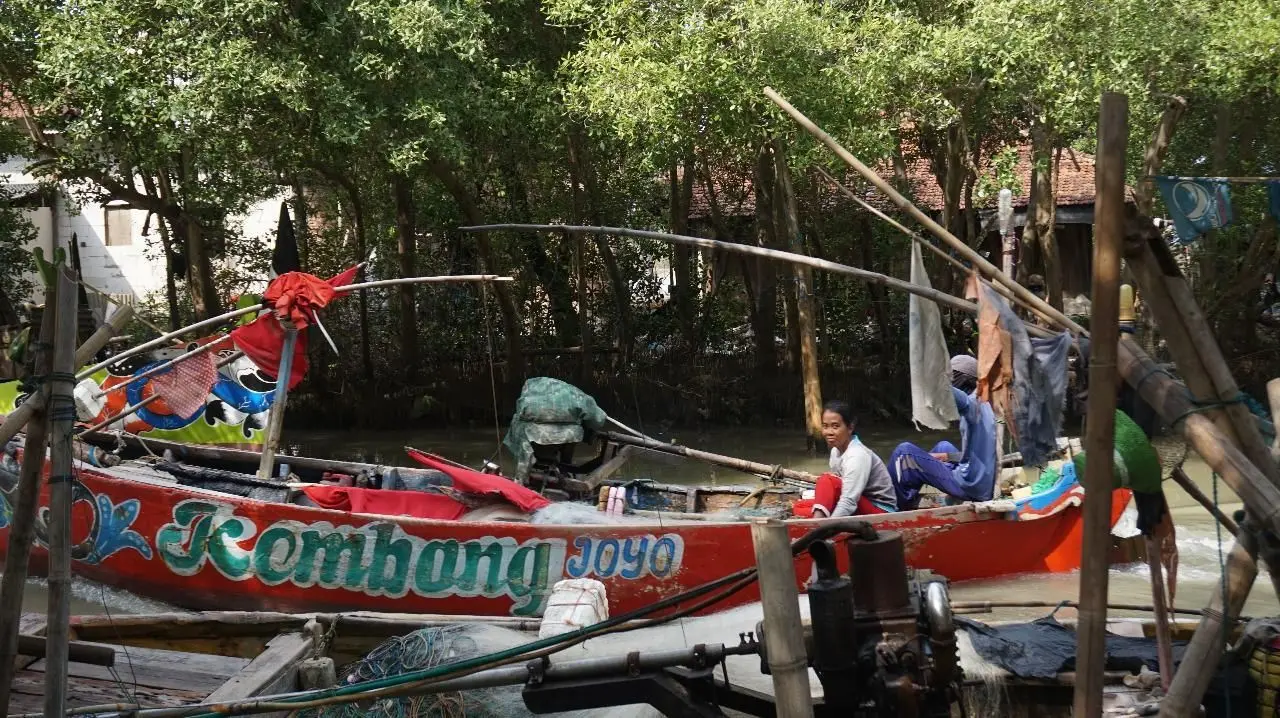
Coastal women (fisherwomen and fishermen’s wives) play a significant role in the livelihood of fishermen’s families in Demak, Indonesia. At least 48% of fishermen family's income was contributed by women.
They have taken the initiative on economic activities, driving alternative sources to earn additional income for their families. The economic activities they carry out help the survival of the fishermens' families during the unfavorable fish season.
They also play an important role in the fisheries production chain. Fisherwomen and fishermen’s wives play a large part in the fishery economic value chain, from pre-production to post-production, with working hours exceeding 17 to 18 hours per day. These activities range from fishing, processing, and marketing the catch.

As a nonprofit journalism organization, we depend on your support to fund more than 170 reporting projects every year on critical global and local issues. Donate any amount today to become a Pulitzer Center Champion and receive exclusive benefits!

At least 56 million people in Indonesia are involved in fisheries activities. Of that number, 70% or around 39 million people are women. Various economic roles and initiatives driven by fisherwomen and fishermen’s wives contribute to the local economy and reduce poverty in coastal communities.






